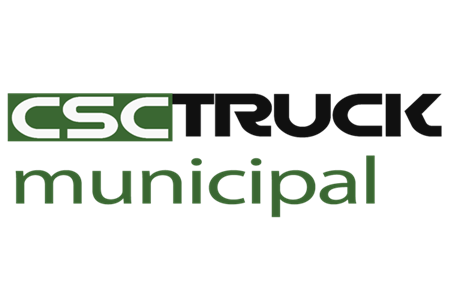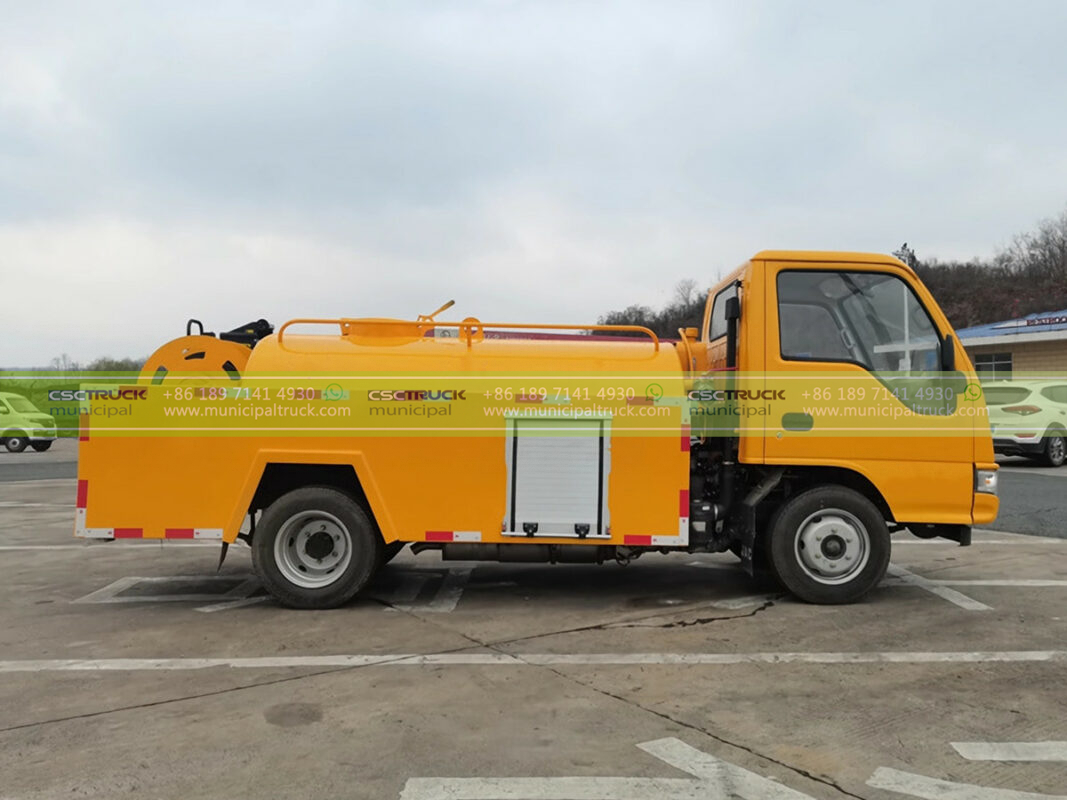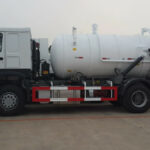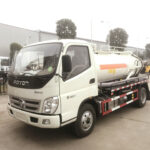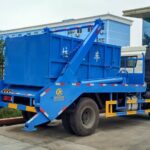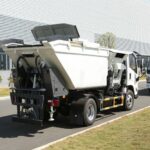A Watershed Moment for Lagos’ Drainage Infrastructure
Amidst growing concerns over increasingly severe annual flooding that paralyzes key economic corridors and displaces vulnerable communities, Lagos State today marked a transformative stride in its urban resilience strategy. At a high-profile commissioning ceremony attended by the State Commissioner for the Environment & Water Resources, senior infrastructure officials, and representatives from the contracting consortium, the first tranche of an impressive fleet of 20 ultra-high-capacity sewer cleaner trucks formally entered service. This strategic deployment, timed deliberately ahead of the peak of the rainy season, signifies a major tactical escalation in the state’s multi-billion-naira, multi-year campaign to overhaul its overwhelmed drainage network and reclaim its streets from the devastating impact of stormwater inundation. The visible presence of these formidable machines at the Ijora Central Maintenance Yard underscores a tangible commitment to mitigating the chronic disruptions caused by blocked drains and insufficient evacuation capacity during torrential downpours.
Engineering Muscle: Inside Lagos’ New Drainage Defenders
This section delves into the technical specifications and operational capabilities that distinguish this new fleet as a game-changer for Lagos’ flood mitigation efforts.
- Unprecedented Evacuation Power: The core strength of these custom-engineered sewer cleaner trucks lies in their massive debris extraction and fluid handling capacity. Equipped with industrial-grade, high-torque vacuum systems and reinforced debris tanks exceeding 16,000 liters, a single unit can efficiently clear vast quantities of silt, compacted refuse, vegetation, and stagnant water from major trunk lines and critical canals – tasks that previously required multiple smaller vehicles or extended manual labor under hazardous conditions. Their capability to handle heavily sedimented flows fundamentally alters the efficiency equation for maintaining the metropolis’s arterial drainage channels.
- Advanced Mobility & Versatility: Designed specifically for Lagos’ complex urban terrain, featuring congested roadways and access challenges to waterfront areas, these trucks incorporate robust, high-clearance chassis and articulated boom systems with extended reach. Crucially, they integrate high-pressure water jetting modules capable of dislodging deeply embedded obstructions and scouring pipe walls, alongside sophisticated debris separation systems for efficient waste handling. This integrated functionality minimizes downtime and maximizes the effectiveness of each deployment cycle, ensuring rapid response to blockages identified through the state’s enhanced drain monitoring network.
- Enhanced Safety & Environmental Control: Recognizing the significant health risks associated with sewage overflow and manual drain cleaning operations, the new fleet incorporates critical safety advancements. Sealed waste handling systems drastically reduce the exposure of sanitation workers and the public to pathogens and noxious gases, while onboard water treatment capabilities allow for controlled, environmentally compliant disposal of extracted wastewater, mitigating secondary pollution risks to sensitive Lagos Lagoon ecosystems often exacerbated by uncontrolled flood discharges.
Strategic Procurement & Partnership Driving Resilience
The acquisition of these high-capacity sewer cleaner trucks stems from a meticulously structured procurement initiative under the Lagos State Strategic Drainage Master Plan (LS-SDMP). The landmark contract was awarded to a specialized joint venture partnership combining the global technical expertise of CSCTRUCK Municipal, a renowned leader in heavy-duty municipal sanitation equipment, with the deep local operational knowledge and maintenance infrastructure of Apex Infrastructure Solutions Ltd., a major Nigerian industrial services provider. This collaborative model ensures not only the timely delivery of cutting-edge technology but also guarantees the sustainable operation and long-term maintenance of the fleet through comprehensive technical training programs for Lagos State Wastewater Management Authority (LAWMA) engineers and the establishment of dedicated local service centers stocked with genuine parts. The phased delivery schedule, rigorously negotiated to align with critical pre-rainy season preparedness timelines, reflects the project’s strategic prioritization within the state government’s broader flood defense budget allocations announced earlier this fiscal year.
Operational Deployment & Future-Proofing Drainage Management
Immediate operational deployment of the initial batch of sewer cleaner trucks is already underway, strategically prioritized for historically flood-prone corridors including Ikorodu Road, Lekki-Epe Expressway (Phase 1), Apapa-Oshodi corridor, and critical mainland areas like Agege and Mushin. LAWMA command centers are integrating real-time data feeds from these assets into their dynamic drainage clearance scheduling protocols, enabling proactive interventions based on weather forecasts and sensor data from critical choke points. Crucially, intensive operator training, conducted jointly by CSCTRUCK Municipal specialists and Apex Infrastructure engineers, focuses on maximizing the sophisticated capabilities of the vacuum truck and integrated jetting systems, emphasizing safe procedures for deep sewage truck operations in confined urban spaces. With meteorological agencies projecting above-average rainfall intensity for the 2025 season, the timely arrival and swift integration of this high-capacity cleaning infrastructure represents Lagos State’s most potent physical countermeasure yet. The state government underscores that this fleet forms the vanguard of a sustained, technology-driven offensive against urban flooding, laying essential groundwork for subsequent phases of drain modernization, expanded retention basin construction, and intelligent water management systems essential for the long-term livability and economic security of Africa’s most populous megacity.
